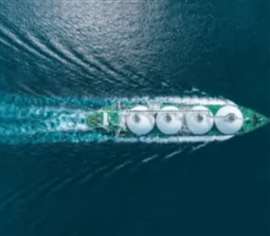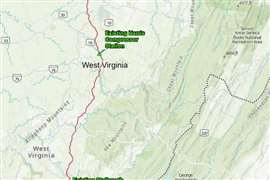Coastal Bend LNG announced plans to develop a 22.5 million ton per annum (Mtpa) natural gas liquefaction and export facility along the Texas Gulf Coast, marking a significant addition to the next wave of U.S. LNG infrastructure.
 Coastal Bend LNG initiates development of 22.5 Mtpa LNG export facility. (Image: Coastal Bend LNG)
Coastal Bend LNG initiates development of 22.5 Mtpa LNG export facility. (Image: Coastal Bend LNG)
The proposed project will include up to five liquefaction trains, each with 4.5 Mtpa capacity, as well as cogeneration, LNG storage tanks, and export systems designed to support marine shipping, bunkering, and ISO container transport. In line with growing global demand for lower-emission fuels, the facility will integrate carbon capture, transport, and storage across both liquefaction and cogeneration operations.
“We are responding to growing global demand for low carbon intensity LNG,” said Nick Flores, CEO of Coastal Bend LNG. “The integration of carbon capture on both our liquefaction and cogeneration facilities will deliver low carbon intensity LNG while monetizing both 45Q tax credits and our low-carbon products.”
According to the company, carbon capture will be a core element of the project’s emissions profile. The use of cogeneration—where electricity and process heat are produced simultaneously—along with CO₂ capture and sequestration is expected to reduce the overall carbon intensity of the exported LNG compared to conventional production.
Coastal Bend LNG anticipates beginning the pre-filing process with the Federal Energy Regulatory Commission (FERC) in 2025. The company has not yet disclosed a target date for the start of construction or commercial operations.
The facility will source natural gas from U.S. onshore basins, but Coastal Bend has not yet named a specific basin or supply agreement. The project will target customers seeking LNG with a lower lifecycle carbon footprint, including utilities and industrial users in Europe, Asia, and Latin America.
The project enters a crowded field of proposed LNG export terminals along the Gulf Coast, but its focus on integrated carbon management may help differentiate it in a competitive market increasingly shaped by environmental performance and regulatory pressure. U.S. LNG exporters face rising scrutiny from European offtakers and investors over emissions profiles and methane intensity, and developers that can demonstrate meaningful decarbonization strategies may gain a commercial edge.
Coastal Bend LNG is a privately held infrastructure development company based in the United States. The firm’s stated mission is to deliver low-carbon energy with an emphasis on sustainability, innovation, and operational excellence.










